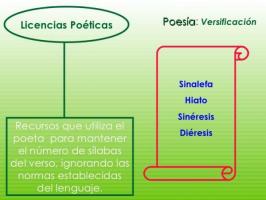The omniscient storyteller: examples

The figure of the narrator is perhaps one of the most important in a novel, since it is the in charge of telling the facts and events that take place throughout history. The narrator is the piece that unites the story that the author wants to transmit to us, the readers; In other words, the writer uses this particular character to tell us a story that, on many occasions, we perceive with the same feelings and opinions as the character himself.
There is a wide typology of storytellers. In this lesson from a Teacher we will focus on the figure of the omniscient storyteller with examples, a character who knows everything and for whom there is no unsolved mystery in fiction. If you want to know more about this unique character, keep reading!
Index
- Main characteristics of the omniscient narrator
- Examples of omniscient narrator (I)
- Examples of omniscient narrator (II)
Main characteristics of the omniscient narrator.
The omniscient narrator is characterized, fundamentally, because
knows perfectly the development and subsequent outcome of the story; that is, he possesses the gift of ubiquity, which allows him to know for sure everything that has happened in the past and everything that is about to happen in the future.He has all the details about the events that are narrated and recounts the actions and events that happen to the characters always using the third person singular or plural.
The omniscient narrator speak in third person and, for this reason, he is not a direct part of the plot. He can explain the feelings, thoughts and emotions of the characters because he knows absolutely everything that happens in the novel or story.
In this other lesson from a teacher we will discover the different types of narrators and their characteristics.

Examples of omniscient narrator (I)
The omniscient narrator may be out of the action that he himself is transmitting, as in the following excerpt from Luis Landero:
- On the morning of October 4, Gregorio Olías got up earlier than usual. He had spent a confused night, and towards dawn he thought he dreamed that a messenger with a torch appeared at the door to announce that the day of misfortune had come to an end.
Sometimes the figure of the omniscient narrator he dives into the minds of the characters and he reveals to us some of the deepest and most unknown thoughts, emotions or feelings, as in the following text of The tenant from Javier Cercas:
- That's when he sprained his ankle [...] He fell into a bad position: the instep of the foot the left of him carried the full weight of the body. Suddenly he felt excruciating pain; he thought he had broken his foot. With some difficulty, sitting on the grass, he took off his shoe and sock, he checked that the ankle was not swollen. The pain quickly subsided, and Mario told himself that with luck the mishap would not be of much consequence. He put on his sock and slipper; got up; he walked carefully: a pang tore at his ankle.
In this fragment are reflected feelings and impressions that he can only feel and know his own protagonist but that, however, are also discovered to readers through the omnipresent gaze of the storyteller.
Examples of omniscient narrator (II)
Like we have already said, the omniscient narrator knows absolutely everything that has happened and will happen within the novel, which gives it maximum authority in terms of the action it relates and leads to readers having less margin to imagine in a different way any of the aspects of the narrative, since the text reaches us with all the luxury of details.
Other omniscient storyteller example is the following snippet:
- The day they were going to kill him, Santiago Nasar got up at 5.30 in the morning to wait for the ship in which the bishop was arriving. He had dreamed that he was going through a fig forest where a tender drizzle was falling, and for a moment he was happy in the dream, but when he woke up he felt completely splashed with bird shit.
In the above text, the beginning of the work A Chronicle of a Death Foretold by Gabriel García Márquez, is portrayed to the smallest detail of the dream that the protagonist had.
In addition, another remarkable aspect of this fragment is undoubtedly the beginning "the day they were going to kill him"; We, as readers, do not know the reason for this death, but nevertheless, the omniscient narrator does and will be in charge of gradually revealing to us how the events that led to the death of the protagonist.
If you want to read more articles similar to The omniscient storyteller: examples, we recommend that you enter our category of Literary concepts.


